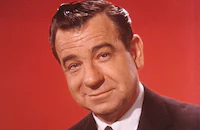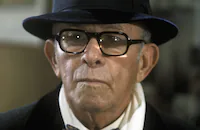The Sunshine Boys

Brief Synopsis
Cast & Crew
Herbert Ross
Walter Matthau
George Burns
Richard Benjamin
Fritz Feld
Carol Arthur
Film Details
Technical Specs
Synopsis
Two retired vaudville comedians are persuaded to reunite for a television special after twenty years apart despite the fact that they hate each other. Now the show's producer must convince the cranky old men to put aside their differences for the sake of the big show.
Director

Herbert Ross
Cast

Walter Matthau

George Burns

Richard Benjamin

Fritz Feld
Carol Arthur
Howard Hesseman
Rosetta Lenoire
Tom Spratley
Sammy Smith
Bob Goldstein
Garn Stephens

F. Murray Abraham
Dan Resin

Steve Allen
James S Cranna
Ron Rifkin
Sid Gould
Duchess Dale
Rashel Novikoff
Milt Kogan
Santos Morales
Bill Reddick
Archie Hahn
Gary K Steven
Eddie Villery
Phyllis Diller
Jack Bernardi
Lee Meredith
Walter Stocker
Jennifer Nicole Lee
Crew
Margaret Booth
Albert Brenner
Nacio Herb Brown
John F. Burnett
Gary Daigler
Wayne Fitzgerald
Arthur Freed
Jerry Jost
Harry V Lojewski
Marvin March
Patricia Norris
Jack Roe
Roger Rothstein
Neil Simon
Neil Simon
Dick Smith
Ray Stark
Harry W. Tetrick
David M. Walsh
Photo Collections
Videos
Movie Clip



Trailer
Hosted Intro
Film Details
Technical Specs
Award Wins
Best Supporting Actor
Award Nominations
Best Actor
Best Art Direction
Best Writing, Screenplay
Articles
The Sunshine Boys
The Sunshine Boys had been a hit on Broadway in 1973 with Jack Albertson and Sam Levene in the leading roles. With Simon's track record, there was little doubt that it would become a movie. Although there was talk of casting both roles with aging comics, Stark and Ross decided to go with Walter Matthau, who had scored as Oscar in both stage and screen versions of The Odd Couple and had more marquee value. Originally, they cast Jack Benny as his estranged partner, but when Benny fell ill, he suggested his old friend Burns for the role. Even though Burns had not made a film since Honolulu in 1939, they knew at once that it was the perfect choice. For his part, the comic was thrilled with the assignment but apprehensive. He showed up at the first rehearsal knowing the entire script by heart, figuring that would make it harder to fire him if they didn't like his work.
But there was never any chance of that. As filming progressed word of his comeback performance spread around Hollywood. The Sunshine Boys was as big a hit as anyone would have expected from a Simon adaptation, though it was barely mentioned in the end-of-the-year critics' awards. When the more populist Hollywood Foreign Press announced their Golden Globe nominations, however, the picture was up for five, including Best Motion Picture-Musical/Comedy and Best Supporting Actor, Richard Benjamin (as Matthau's nephew, who packages the reunion as part of a television special). At the time, MGM was promoting Burns as a leading player, so he and Walter Matthau were in competition for Best Actor-Musical/Comedy. The Sunshine Boys scored big at the Golden Globes, with the film and Benjamin winning awards. When they announced Best Actor in a Musical/Comedy, however, it was Matthau who was called to the stage. Burns went with him nonetheless, "I just came up here to help him up. That's all." The two got a standing ovation.
Then management decided that Burns gave them their best shot at an Oscar. Even Matthau agreed that it was Jack Nicholson's year to take Best Actor (for One Flew Over the Cuckoo's Nest). So they bumped Burns down to the supporting category, and he won the nomination. Although faced with formidable competition from Chris Sarandon in Dog Day Afternoon and Brad Dourif in One Flew Over the Cuckoo's Nest, Burns was unbeatable. At 80, he was the oldest winner in Oscar history to date (Jessica Tandy would be a few months older when she won for Driving Miss Daisy in 1989). He was also one of the funniest. He told the audience, "This is all so exciting. I've decided to keep making one movie every 36 years. You get to be new again." Afterwards he quipped, "I'm thinking of taking on Gentile roles and becoming the new Robert Redford."
The Sunshine Boys gave Burns a new career as a film star at the age of 80. He followed it with more great roles - in Oh, God! (1977) and its two sequels; Going in Style (1979), in which he and Art Carney played elderly bank robbers; and his last feature, Radioland Murders (1994). He always joked that he had booked an engagement in Las Vegas for his 100th birthday. He made it to the birthday, but was too ill to keep the engagement. Burns passed away in 1996, just six weeks after hitting 100.
Producer: Ray Stark
Director: Herbert Ross
Screenplay: Neil Simon
Based on his play of the same title
Cinematography: David M. Walsh
Art Direction: Albert Brenner, Marvin March
Music: Harry V. Lojewski
Principal Cast: Walter Matthau (Willy Clark), George Burns (Al Lewis), Richard Benjamin (Ben Clark), Lee Meredith (Nurse in Sketch), Carol Arthur (Doris), Rosetta LeNoire (Nurse), F. Murray Abraham (Mechanic), Howard Hesseman (Commercial Director), Ron Rifkin (TV Floor Manager).
C-112m. Letterboxed. Closed captioning. Descriptive video.
by Frank Miller

The Sunshine Boys
Ray Stark (1915-2004)
Born on October 3, 1915 in New York City, Stark was educated at Rutgers University and New York University Law School. After graduation, he started his entertainment career selling radio scripts before he became a literary agent for such notable writers as Ben Hecht, Thomas P. Costain, and Raymond Chandler. After serving in the Navy during World War II, Stark - who had show-business connections through his mother-in-law, Broadway legend Fanny Brice - eventually became a top Hollywood agent at Famous Artists, where he represented such stars as Marilyn Monroe, William Holden, Kirk Douglas, and Lana Turner.
By 1957, Stark was hungry to develop more of a taste in the film business, so he formed a partnership with fellow producer Elliott Hyman to create the independent movie firm, Seven Arts Productions. Stark's first film production credit was the popular drama The World of Suzie Wong (1960) starring William Holden and Nancy Kwan; and he followed that up with an adaptation of Tennessee Williams' superb Night of the Iguana (1964) with Richard Burton, Deborah Kerr and Ava Gardner.
Around this time, Stark had the ambition to produce a musical based on the life of his late mother-in-law, and produced his first Broadway musical - Funny Girl. The musical opened on March 24, 1964 and made Barbra Streisand the toast of the Great White Way. Eventually, Stark would make the film adaptation four years later, and Streisand would win the Academy Award for Best Actress. Stark would also arrange a contract with Streisand to do three more movies for him within the next 10 years that still prove to be the most interesting of her career: the hilarious sex farce The Owl and the Pussycat (1970) with George Segal; the romantic drama The Way We Were (1973) with Robert Redford; and the sequel to her film debut Funny Lady (1975) co-starring Omar Sharif.
Stark also delivered another Broadway luminary to the movie going masses when he brought a string of well-acted, Neil Simon comedies to the silver screen, most notably: The Goodbye Girl (1977) with Marsha Mason and Richard Dreyfuss (Oscar winner, Best Actor); The Sunshine Boys (1975) with Walter Matthau and George Burns (Oscar winner, Best Supporting Actor); California Suite (1978) with Alan Alda, Michael Caine, and Dame Maggie Smith (Oscar winner, Best Supporting Actress); the nostalgic Brighton Beach Memoirs (1986) with Blythe Danner; and Biloxi Blues (1988) with Matthew Broderick. He also produced Steel Magnolias (1989), with an ensemble cast that introduced audiences to a radiantly young Julia Roberts. In television, Stark won an Emmy award for the HBO's telefilm Barbarians at the Gate (1993). His last credit as a producer (at age 84) was the Harrison Ford picture Random Hearts (1999).
Although he never won an Academy Award, Stark earned the most prestigious Irving G. Thalberg Award in 1980 and the David O. Selznick Lifetime Achievement Award from the Producers Guild of America in 1999. He is survived by his daughter, Wendy, and granddaughter, Allison.
by Michael T. Toole
Ray Stark (1915-2004)
Quotes
Lousy Japs, they lost the war, now they send us their junk!- Willy Clark
Oh, you a funny man, Al, a pain in the ass but a funny man.- Willy Clark
You know what your trouble is, Willy? You always took the jokes too seriously. It was just jokes. We did comedy on the stage for 43 years. I don't think you enjoyed it once.- Al Lewis
If I was there to enjoy it, I would buy a ticket.- Willy Clark
Trivia
Jack Benny was signed for the role eventually taken by 'Burns, George (I)' . Ill health forced him to back out of the project.
Miscellaneous Notes
Winner of the 1975 Acadamy Award for Best Actor in a Supporting Role (George Burns). Also nominated for Best Actor (Walter Matthau), Best Writing-Screenplay Adapted from other material, and Best Art Direction.
Released in United States November 1975
Released in United States Winter December 16, 1975
Released in USA on video.
Walter Matthau was cast as Willy Clark after Jack Benny's death.
Released in United States November 1975
Released in United States Winter December 16, 1975















